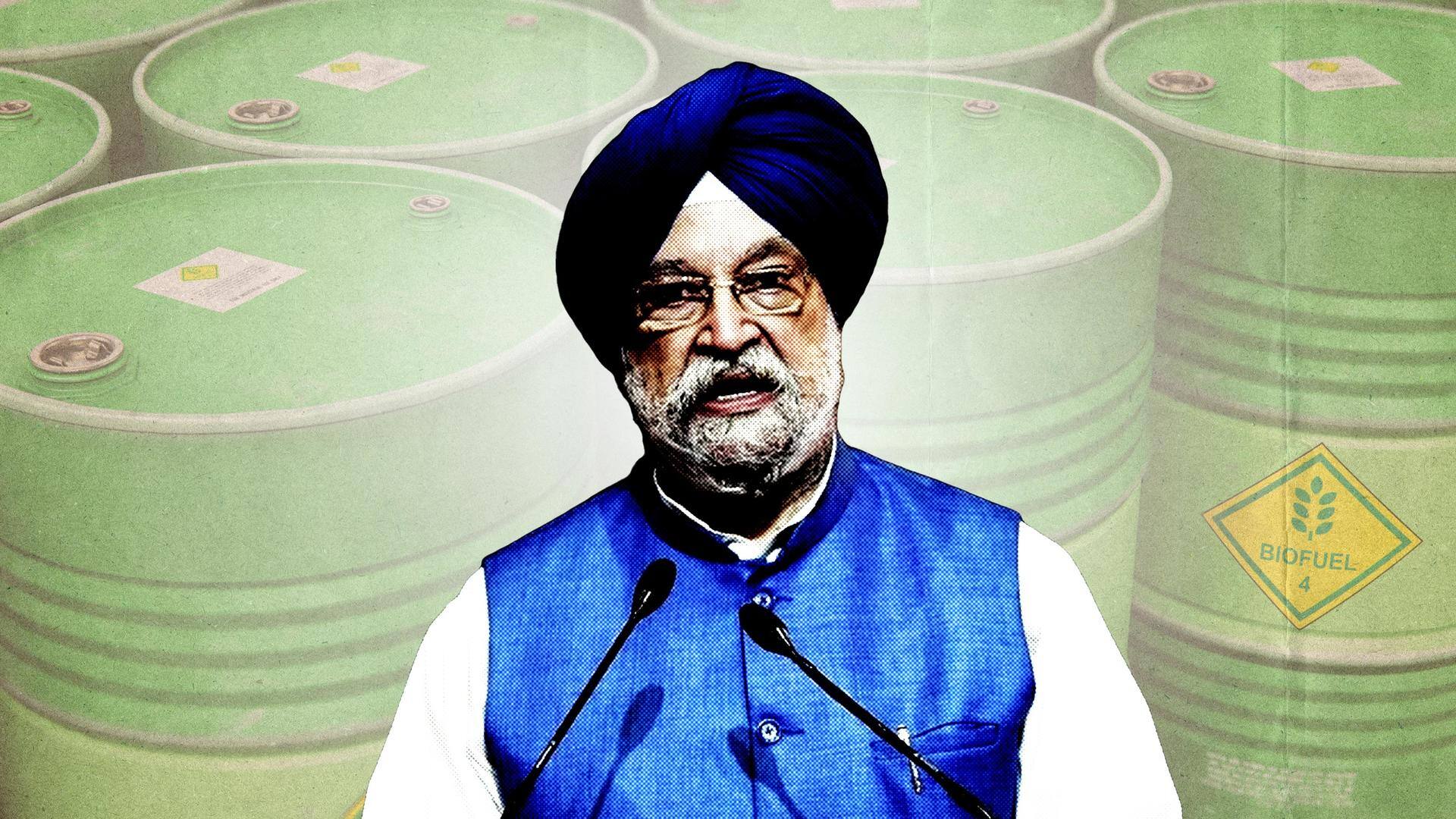
India's National Policy on Biofuels and how it affects you
What's the story
To reduce the dependence on fuel imports and to boost employment in India, the Centre formulated the National Policy on Biofuels in 2018. Since then, the government has introduced amendments to the policy to raise the production of biofuels and fast-track the ethanol-blending targets. What are the highlights of this policy and how does it affect you? Let us have a look.
Details
Brief info about the National Policy on Biofuels
The policy was first tabled by the Union Ministry of Petroleum and Natural Gas five years back. It allowed the usage of sugarcane juice, damaged food grains like broken rice and wheat, and starch and sugar-containing materials for the production of ethanol. Using surplus food grains to produce ethanol for blending with petrol was also allowed.
Changes
There were some changes to the policy last year
In 2022, the ethanol blending (20% of ethanol in petrol) target was revised from the year 2030 to 2025-26. Secondly, the Centre permitted more feedstocks (biomass meant for conversion to energy) for the production of biofuels and also granted permission for exports. Promotions also began regarding the production of biofuels by units in Special Economic Zones/Export Oriented Units, under the Make in India program.
Twitter Post
The policy was a success as per the petroleum minister
In the area of biofuel, we had a target of 20% biofuel mixing by 2030 but PM Modi has changed the target to 2025 and we will achieve it within the next year. We also reached our biofuel target of 2022, 5 months before the target: Minister for Petroleum and Natural Gas Hardeep… pic.twitter.com/1M2JR3o0zR
— ANI (@ANI) April 17, 2023
Effect
How does the policy impact the country?
Thanks to the implementation of the policy, greenhouse gas (GHG) emissions in the country have gone down by 27 lakh MT. India also saved funds worth over Rs. 41,500 crore, which would otherwise be spent on fuel bills. Thanks to the focus on the Make in India drive, biofuel is being produced here in ever-increasing quantities, thereby reducing our reliance on petroleum imports.
Auto
How fuel blending affects automakers?
To run ethanol-blended fuel in vehicles, automakers have to make modifications to the engines. This involves changes to fuel lines and hoses so that they can handle the highly corrosive ethanol. OEMs also have to keep in mind ethanol's lower energy density, while designing the powertrains. The firms incur significant R&D costs, which are reflected in the increased prices of new vehicles.
Customers
Is blended fuel good for vehicle owners?
Ethanol-blended petrol is helping India's energy self-reliance and lowering emissions. However, the situation is not so rosy for vehicle owners. Blended fuels raise vehicular maintenance costs and also reduce fuel efficiency by 6-7%. Ethanol-blended fuels are cheaper than pure petrol but have a lower calorific value. Hence, fuel consumption in the case of the former is higher. Higher consumption implies higher running costs.